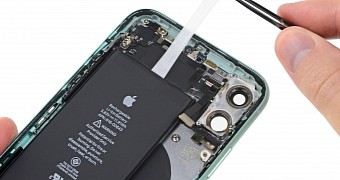The European Union is looking into a new set of rules that could essentially force phone manufacturers to bring back removable batteries in a way that would allow users to replace a dead battery at home.
The idea is part of a draft whose purpose is to reduce e-waste, and according to Dutch site Het Financieele Dagblad, which is supposed to be announced in mid-March by Frans Timmermans, leader of the EU Commission’s European Green Deal project.
According to the new regulations, device manufacturers, including phone makers like Samsung and Apple, would have to change the design of their handhelds in such a way that replacing a degraded battery would be possible much easier.
Reducing e-waste
The whole plan is to reduce e-waste, as the EU believes that someone who’s able to replace the battery on their own would use a smartphone for a longer period of time. This means fewer people would rush to purchase a new device when the battery dies, which, in turn, contributes to a substantial cut in terms of electronic waste in the long term.
On the other hand, modifying the design of smartphones to allow for easier battery replacements could compromise other capabilities, including water resistance. Both Apple and Samsung make a big deal about the IP68 rating on their smartphones, which is also possible thanks to non-removable batteries, so such regulations could substantially impact such features.
The new laws come after the EU also adopted regulations to require device manufacturers to use USB Type-C as the common port for devices sold in Europe. Described as another measure to reduce e-waste, the mass adoption of Type-C would technically make it possible for consumers to use one cable and charger for multiple devices.
Apple, on the other hand, has previously warned that such regulations would actually increase the electronic waste, as some manufacturers could turn to other gimmicks, such as adapters, to sidestep the requirements and continue using their own proprietary ports.

 14 DAY TRIAL //
14 DAY TRIAL //